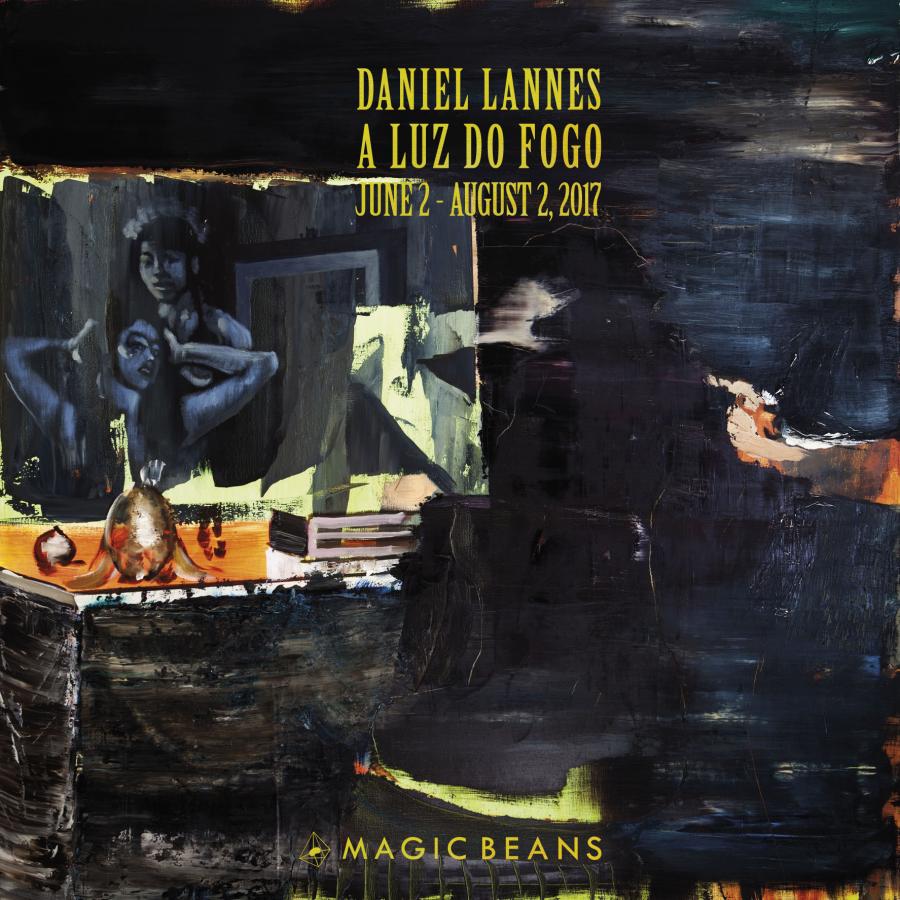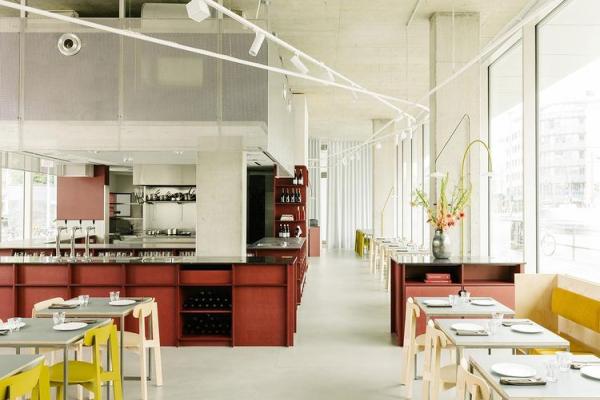Modern european cuisine
A Luz Do Fogo
Fri, 2 Jun 2017 18:00-21:00at Magic Beans
A Luz Do Fogo
For his first solo show in Berlin, the Brazilian painter Daniel Lannes (b. 1981) presents eight canvases in which he explores a universe of allegories and clichés, immersed in the atmosphere of colorful-warm locations. The represented scenes exude lust, irony, a bit of violence, cynical exoticism and power relations, while subtly evokes the cultural and historical background of Rio de Janeiro City, where the artist grew up. Completing 10 years of artistic practice, Lannes has been pointed out by critics as one of the highlights of his generation in Brazil. His paintings are inspired by diverse historical references as well as banal images found in old books, magazines and the media in general. Based on this the artist opens up a deep discussion on Western painting legacy and its heritage in Brazil - especially the history of Brazilian academic art seeded by the Imperial Fine Arts Academy (Academia Imperial de Belas Artes) which was founded in 1816 in Rio, capital of the former Colony, by French masters and established under the orders of King Dom João VI of Portugal.
Daniel Lannes was trained in the Arts Academy in Rio, somehow in the footprints of the old art school. He adopted rigorous and sophisticated techniques to mix tradition and contemporary ordinary life, and beyond the carnal and even brutal images presented, in each work he faces typical challenges of painting. Thus, a mass of intertwined bodies is turned into a certain abstract mass of color through a gestural handling motivated by the luminous and agitated group of people painted by Peter Paul Rubens, for example.
In A Luz Do Fogo (Light of Fire) a sensual celebration is present, although the inherent voluptuousness is no more the leitmotif than the obsession with the alchemy of painting fostered by the artist. Nevertheless it is worthy to say that Daniel Lannes´ works shown in German context lead us to reflect about disparate and contrary perceptions of the body and sex in Germany and in Brazil, whose catholic matrix associated with the indigenous and Afro culture has generated a society that moves between the taboo of sinful nudity and the natural drive of undressing amid a scenario of ubiquitous dense nature. The Europeans brought shame to the tropics, and from the conflict between the refusal and acceptance of imposed traditions, a society was born whose biggest feast is that one which celebrates bodies in ecstasy: the carnival with its contradictions, catharsis, irrationality, radiance and libido; a carnival that somehow rules the country and underlies the recent paintings of Lannes.
Text: Daniela Labra

